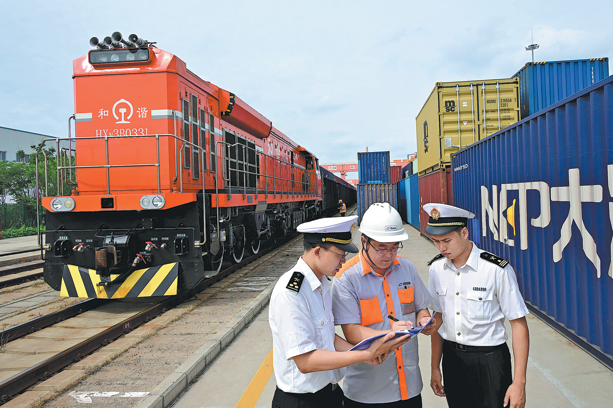Doomsayers underrate economy's resilience

China's leaders have time to finetune their policies to steer the economy away from a major setback
Poor economic performances brew discouraging forecasts. So there have been quite a few scenarios for China's setback in 2014, based on its slowdowns in January and February.
Indeed, the country would be in deep trouble - if its size were limited to that of Sichuan province and Chongqing municipality (equivalent to France), or if all its business activities were centered on the Shanghai Stock Exchange.
But the reality is that the country is still far from being cornered by the problems people spot at the moment: from a massive industrial machine no longer driven by enough orders from both internal and external markets, to many investment projects failing to generate expected returns.

Thanks to its large size and complexity, China can still afford some more time to digest the lessons of the recent global recession. It can still experiment with a multitude of new policies and laws - not just one or two. Over the next couple of years people will be able to see whether or not these adjustments work.
For the time being, it is unlikely that all of China's industry completely runs out of orders when there is mild recovery of the global market.
Chinese manufacturers usually have widespread connections and are quick to learn. They are not easily replaced by companies from elsewhere.
Nor would it be possible for the real estate market to crash in all cities at the same time. The first-tier cities, where the large real estate developers and large banks are based, are still far away from a general collapse in their housing prices.
Yes, there will be defaults, but the so-called "scary" default that some people are talking about will be largely limited to local governments, many of them city governments, and investment funds with specific industry focus.
Monthly slowdowns and regional defaults will be reported on a more regular basis. But they are trivia when compared with the need to build the country's framework for future economic development.
The most convenient way for local governments to shed their impossible liability is to sell off some of their expensive office buildings and convention centers to private companies.

Some office buildings could be converted into privately owned hospitals or colleges. It doesn't require rocket science to get this done, as long as the investors' rights can be protected by policies and laws.
With similar rules, land could be sold to investors in many social services - education and medical care being two of the most important and most inadequate. The country's ambitious urbanization program will never go far until these services are greatly improved.
With good policies and laws, government entities may in fact incur more debt rather than less in financing longer-term development plans, such as even more roads, high-speed railways and clean energy projects.
The same policies and laws will be needed on the national level, when China is ready to embrace more free trade practices (first in its pilot free trade zones) and to meet the challenge of such new global trade schemes as the Trans-Pacific Partnership, which the United States formally joined in 2011 and has since been championing.
Developing competitive policies and laws, and having them duly implemented, is the most important task for China. This was the key message from the Chinese leaders after the Third Plenum last year. The real challenge for this year is how much is to be done along those lines. And soon enough, at the forthcoming annual sessions of the National People's Congress and the Chinese People's Political Consultative Conference national committee, we will see how much social force the leaders can mobilize.
Without such a framework, no matter how much growth in GDP the country can achieve on a quarterly or yearly basis, China will not build much global influence. But with it, it can derive a lot of resilience from its large size and great complexity, and eventually build itself into a truly great economy.
The author is editor-at-large of China Daily. Contact the writer at edzhang@chinadaily.com.cn
(China Daily Africa Weekly 02/28/2014 page10)
Today's Top News
- Commerce minister urges US to increase areas of cooperation
- Strong demand for China's sovereign bonds signals global confidence
- Ministry urges Japan to 'maintain self-respect'
- Li: Forge closer ties with Zambia
- China seeks follow-up actions on Nexperia
- Xi: Emulate Hu Yaobang's spirit, style































